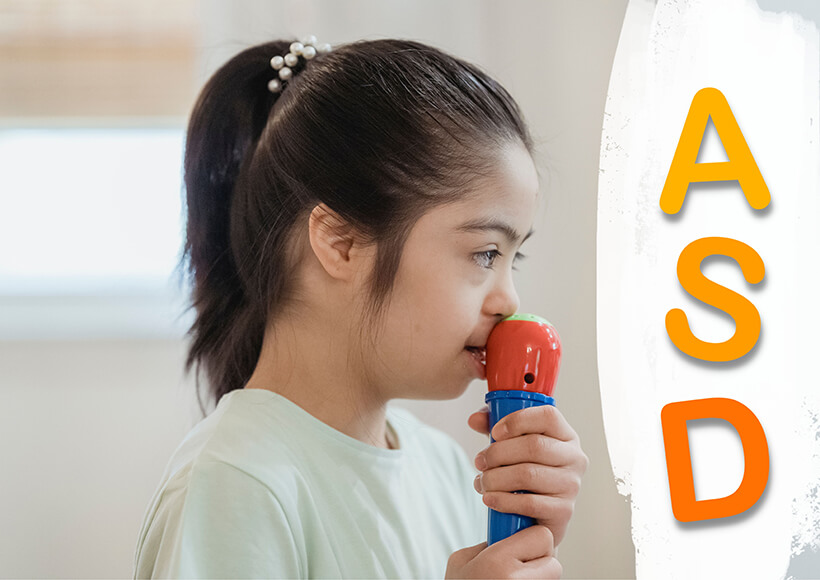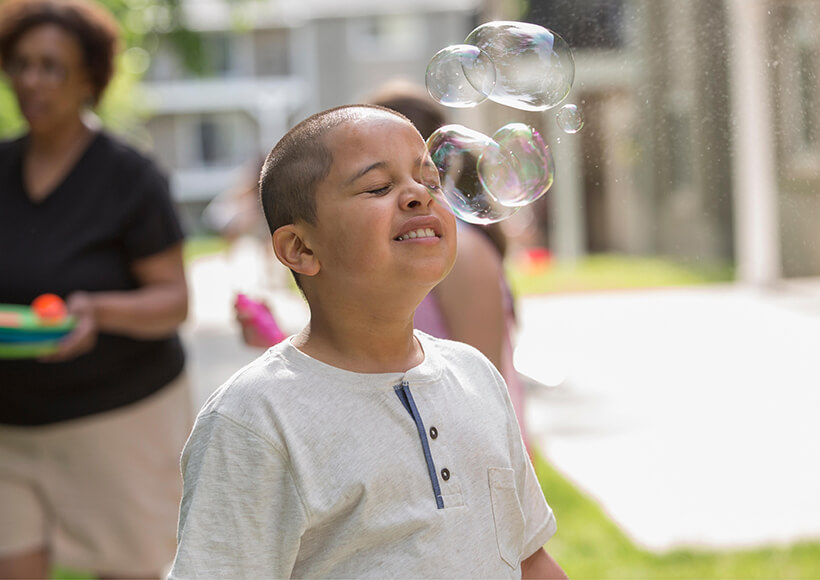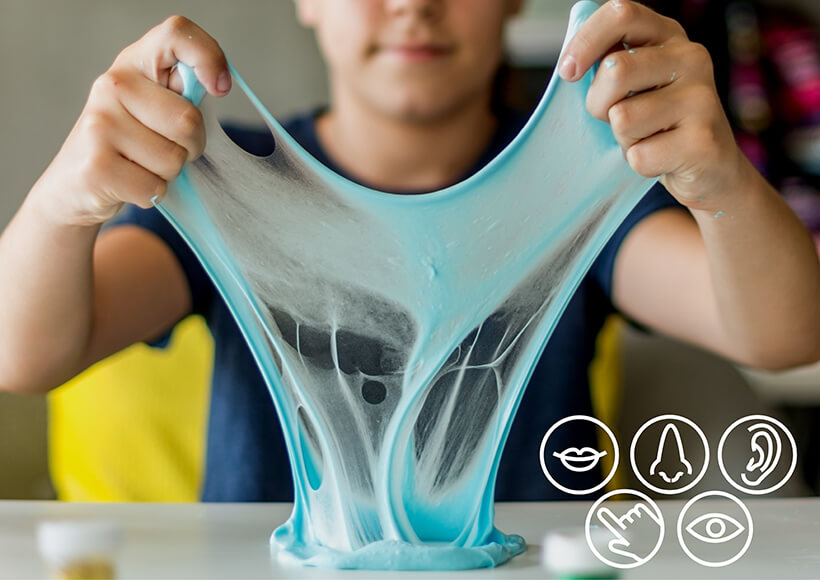Your nursery should be underpinned by inclusive practice. Autism Spectrum Disorder (ASD) is children’s most commonly diagnosed Special Educational Needs and Disabilities (SEND). Your childcare provision will likely support several children who display signs of ASD.
Making your nursery Autism-friendly is not an enormous task; it doesn’t require complex equipment or specialist resources. In this article, we share expert advice on how to help ASD children in the Early Years, plus highlight activities that will help to develop toddlers’ social and communication needs.
As your staff are those who meet them first, it is important to be aware of signs of autism in toddlers and adapt the practice to be Autism friendly.

Autism in the Early Years: Meet the expert

Louise Jackson uses her Master of Education in Autism and Mental Health to support children and young people in both mainstreams and SEND specialist settings. Previously a teacher for over a decade, Louise gives expert advice on how to make your nursery environment, routines and CPD training Autism friendly.
What is Autism in the Early Years?
Autism is a term well-known within the educational field. With a growing understanding of the features associated with Autism, now more adults than ever are being diagnosed late in life with Autism, offering some explanation and insight into a long journey of struggle. Autism Spectrum Disorder (ASD) is a vast term that describes a range of neurodiverse features and behaviours. No one person is the same; this is reflected in SEND.
ASD has three common strands that are demonstrated through displayed behaviours, not every person shows all 3, and each child will have their strengths and struggles.
Impacting interactions with others, including eye contact, back and forth conversations and seeking out comfort or interaction from adults or other children
Challenges surround language and its meaning, limited verbal communication, which can require visual support to communicate effectively
Rigidity of thought can lead to challenges with changes to routine and plans or even listening to and taking on other points of view
These are known as the triad of impairments, with one or more consistently visible during an assessment from an educational psychological professional. People with Autism may also show repetitive behaviours or stimming, have one special interest to which a great deal of knowledge and passion is devoted, and experience over or under sensory responses to stimuli.

How do I know if a toddler is Autistic?
Every child might display signs differently. There is no one size fits all. You can look out for behaviours in the following areas:
- Social Interaction
- Social Communication
- Inflexibility of Thought
Here are some common displays of the triad of impairments; share these with your colleagues to aim for early assessment and intervention for any child you may have concerns about.
Behaviours to watch out for: limited eye contact, not returning a smile, not seeking comfort from adults when upset, and reduced interaction with others
Reluctance to follow the gaze of adults, two-way conversations and understanding social cues
Struggles with pretend play, cannot adapt existing games to incorporate changes (such as new people), acceptance of change throughout their nursery school timetable
How can I help a child with Autism in a nursery?
It isn’t just one person’s role to help a child with additional needs in an EYFS setting. It requires a team approach for true success. The team will consist of all nursery staff, the child, and parents. Knowledge is power; you can begin to build an understanding of the child through effective parent communication. Blossom’s likes and dislikes online form allows parents to communicate all personal details about the child. And, as the child grows and changes, the parents can update their child’s likes and dislikes anytime via the Parent App.
The support process can be lengthy; parents and other team members can be reminded that this will not be an overnight ‘fix’ and requires a routine to be established that works for the child with known triggers to be managed carefully.
Autism friendly toys and equipment
There can be confusion among Early Years practitioners about what makes a toy suitable for a child with Autism. The answer is that any toy is. Like any child, children with ASD can interact with any toy they are drawn to. Their playing methods may differ, and they may show a preference for a particular toy or interest. Ensure your toys available for the children are varied with textures, weights, and sizes, and for different purposes. Although your nursery doesn’t need to purchase specialised SEND toys, you may find a child with ASD has a particular sensory need or interest that specialist toys can offer.
Here are some examples of ASD specialist equipment:
- Weighted blanket
- Sensory tubes or bottles
- Slime
- Vibration plates
- Sensory swings

Nursery environment for autistic toddlers
The nursery environment can help or hinder the comfortability of a child with Autism. Children with Autism can interpret sensory stimulation in different ways.
Some children may have under-sensitive reactions, meaning they may not feel pain as much due to reduced touch sense response and may need guidance when engaging in physical activities. In contrast, some children may be over-sensitive to sensory input. These children can find bright lights, noises and textures overwhelming, even painful.

Care should be taken to ensure that your setting environment uses inclusive strategies. If a setting is sympathetic to sensory needs, the opportunity to develop sensory processing skills is planned throughout the day, with all staff recognising the impact the environment can have on the child’s comfortability.
Consistency of routine for toddlers with Autism
Known routines are reassuring; unknowns can be scary.

Having a consistent approach from all staff members can give comfort in the same routines each day. These routines may include morning greetings and starting activities for the day, lunchtime order and communication between child and adult.
All changes cannot be prepared for perfectly; the very nature of a nursery provision is fast-paced and ever-changing. However, pre-empting the known changes and building strategies for change management can help settle a child with ASD who is out of routine. Using your nursery communications system, contact the parents in advance to notify them if the child’s key worker is absent, whilst reassuring them an alternative is knowledgeable about the child’s routines and likes.
Develop language in Autistic preschoolers
Language development can sometimes be delayed in ASD children. Build effective communication and language activities into their daily timetable to develop early speaking and listening skills, and confidence in communication and interaction. Visual supports can be beneficial for explaining routines simply.
Activities to help Autistic toddlers
What is structured play?
Structured play can help to integrate children who need additional encouragement to play with their peers effectively. This may be due to a communication, interaction or confidence delay. Structured play will allow the key worker to initiate, continue or gently end the play between children and can be an excellent form of modelling for turn-taking and sharing equipment.
How does communication and language play help ASD children?
Communication and language are the cornerstones of developing and maintaining friendships. In the Early Years, children begin to build friendships through the medium of play.
It is important to encourage children with Autism, or those showing signs of ASD, to interact with their peers in a non-intimidating way for the child.

There are lots of free communication and language games to play with children in the nursery to help strengthen these skills.
How does sensory play help Autistic toddlers?
Sensory play is a broad topic, covering all 5 senses. The play can involve introducing new textures and sensory information for the child to process in a play scenario. Developing a child’s sensory knowledge is essential to help with language acquisition. Children with Autism often utilise sensory activities to regulate emotions or behaviours, choosing to immerse themselves in the feeling of water, slime, a weighted blanket or the swing. There are many easy ideas to introduce sensory play into your childcare setting.
Supporting children with ASD in your childcare setting can be challenging yet incredibly rewarding. Share this article with your other colleagues to assess the experience children with Autism will have in your setting.
Subscribe to receive expert advice and tips from seasoned professionals in the early years sector.